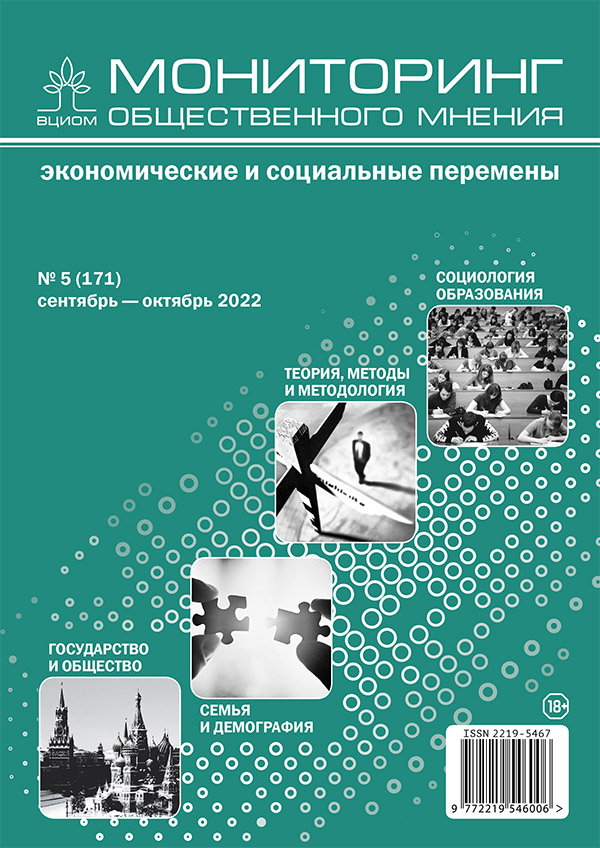Research on Popular Perception of Migrants in Russia and in Europe: Methods, Concepts, Local Contexts (A Review)
DOI:
https://doi.org/10.14515/monitoring.2022.5.2054Keywords:
perception of migrants, comparative analysis, methods of research, anti-migrant sentiment, local specifics of attitudes towards migrantsAbstract
The article is devoted to a comparative analysis of Western and Russian academic studies on the attitude of the host population towards migrants in Russia and the EU. Based on a comparison of data from the European Social Survey (ESS), it is concluded that against the backdrop of the countries of Western and especially Eastern Europe, Russia does not look like a country that is unique in terms of the scale of xenophobia. According to the author, comparing numbers with regard to these processes might be less informative than analyzing the factors that provoke or aggravate migrant-phobia in various social contexts.
The paper draws special attention to the explanatory potential of qualitative methods in the study of the causes and manifestations of negativism in relation to migrants, as well as in the analysis of its local features. On the example of studies in Germany and the UK, conducted at the micro level, the author shows the results of applying several concepts in this thematic field (place image, contact hypothesis, response to diversity, etc.) and discusses the possibilities of applying these concepts to the migration situation in various Russian cities.
Acknowledgements. Preparation of the review article was funded by RFBR, project No. 20-111-50532 (program «Expansion»).
Downloads
Published
How to Cite
Issue
Section
License
Copyright (c) 2022 Monitoring of Public Opinion: Economic and Social Changes Journal (Public Opinion Monitoring) ISSN 2219-5467

This work is licensed under a Creative Commons Attribution-NonCommercial-ShareAlike 4.0 International License.






